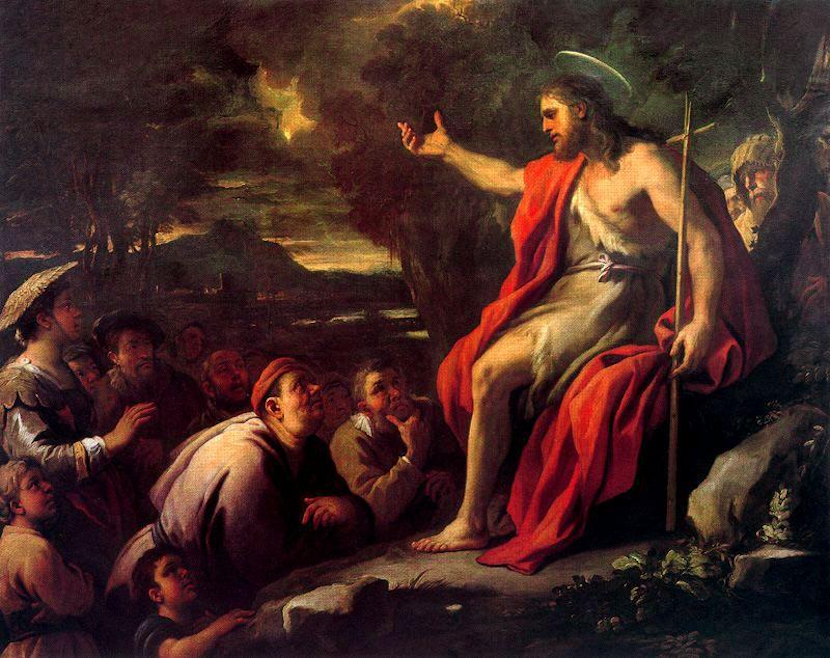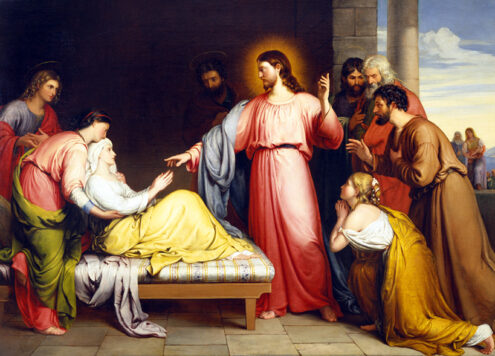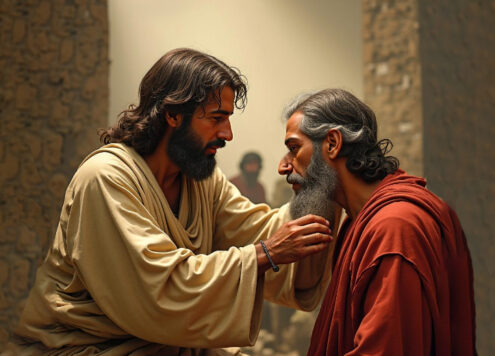John the Baptist is portrayed in the gospels as a man crying out in the wilderness, a rugged and straight-talking prophet (Matthew 3:1–12). John was the precursor to Christ who prepared “the way of the Lord” and he baptized those who repented in self-preparation for Jesus’s new kingdom. Jesus, who came after John, would give us a far deeper baptism of the Holy Spirit. That is why Jesus said that anyone born of the Holy Spirit (in the Kingdom of Heaven) is greater than John the Baptist (Matthew 11:11).
John serves a very important role, however. He was no sweet talker. He was as tough as nails, this eater of honey and locusts. He saw no hint of integrity in the haughty Pharisees who stood before him unmoved and smug in their self-righteousness. They could have blossomed and led their people to experience the freedom and exhilaration of the children of God, but they didn’t. They were too self-serving. John might as well lay the ax to a dry and lifeless trunk as expect a change of heart in these unforgiving men of stone whom Christ described as “whited sepulchers.”
This message, as old as the hills, is still relevant to our lives today, especially during this season of Advent.
We need to wake up to the reality that is always unfolding before our very eyes. God’s salvation always sprouts and grows and blooms wherever there is a willing heart. A good and contrite heart, the Lord will never spurn. John the Baptist was aware of this and he delivered his message of repentance, straight and unadorned to those along the river Jordan’s banks. John was prepared to move aside and step down when the time came so that “all flesh” might “see the salvation of God” in Christ.
Is it any wonder then that the Old Testament prophets would proclaim a time when heaven and nature would sing? Is it any wonder that people of good will, like the simple shepherds who were the first to be alerted to the birth of Christ, would be full of cheer at Christmas time? Is it any wonder that the prophet Isaiah would speak of this birth of the savior as a time when the wolf and the lamb, the bear and the cow, the ox and the lion would be at ease together (Isaiah 11:7). These are images of the peaceful reign of God that would shed a new light into our darkened world with the birth of our Savior. John the Baptist, the Precursor, was the one to announce and prepare us for this new reign of Christ.
Christmas is a time of hope. But we need to dispose ourselves to receive this hope by repenting of sin first, as the Baptist teaches us, so that the new baptism of Christ might take hold of our lives.
—Fr. Hugh Duffy











2 Comments
Kevin Almeida
Nice reflection thoughts for Christmas and a great reminder for me to make it to that confessional
Thanks
Troy Pio Spallino Roman catholic/ revealing heritic in our church under suspension for heresy
It is written…satan!!! Get behind me. What is the heart of the Law. What is the greatest of these laws…of God? Love you and your family froends neighbor brother in the world of yours and the world of God in the world of our Jesus is was and will be forever…the priests are not in our own place forever in our lives but we have to tell…our sweet mothers home the dragon attacks Our Lady.
Tr